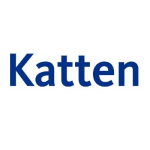In In re Hikari Sales USA, Inc., the Trademark Trial and Appeal Board (TTAB) issued a second precedential decision involving genericness, this year, just two days after issuing its first one. In doing so, the TTAB sent a strong message to brand owners hoping to obtain exclusive rights in highly descriptive or otherwise common terms.
Hikari Sales USA (Hikari) filed a trademark application to register the mark ALGAE WAFERS covering fish food, expressly claiming acquired distinctiveness under Section 2(f) based on use since 1991. A USPTO examiner initially refused to register the mark on the ground that the term was merely descriptive, disregarding Hikari's 2(f) claim. In response, Hikari submitted a declaration, advertisements and survey evidence to support its claim of acquired distinctiveness. The examiner maintained the refusal to register, asserting that the mark was generic, and noting that Hikari's additional evidence of acquired distinctiveness showed the term being used descriptively. Hikari appealed the refusal to the TTAB.
The burden of showing that Algae Wafers is a generic name was with the USPTO. In order to succeed, clear and convincing evidence was needed that the primary significance of the term Algae Wafers to the relevant public is a product name (i.e. fish food), and not the product's source (i.e. Hikari). The TTAB used a two-step inquiry to make the determination: "First, what is the genus of goods or services at issue? Second, is the term sought to be registered ... understood by the relevant public primarily to refer to that genus of goods or services?" The undisputed answer to the first question was fish food – the recitation of goods in the application. As for the second question, it had to be decided whether the term Algae Wafers was understood by the public as primarily referring to fish food – including fish food offered in wafer form and containing algae – requiring the TTAB to assess a wide variety of evidence.
The TTAB investigated use of the term Algae Wafers by competitors, use of the term by Hikari, dictionary definitions, media usage, use by people in the trade and the survey conducted by Hikari. Concluding that the term was generic, the TTAB pointed out that (i) a number of competitors used "algae wafers" descriptively; (ii) Hikari's own advertising materials used the term descriptively; (iii) dictionary definitions for "algae" and "wafer" matched Hikari's packaging, which pictured algae in disk (i.e. wafer) form; (iv) third parties used the term algae wafers in books, news stories and on websites; and (v) lawsuits filed by Hikari to stop competitors from using the term, while allegedly successful, could not be properly considered because Hikari never adduced copies of the final orders. Rejecting Hikari's survey evidence, the TTAB pointed out a number of flaws, prior to stating the survey "is not entitled to any weight."
This case serves as a cautionary tale to those considering using a trademark which provides an understandable message to consumers about an attribute of a product or service. Similarly, it serves as a reminder for brand owners and attorneys to consider whether, or to what extent a proposed term is descriptive, when assessing the risks of adopting a term as a trademark.

|

|
Karen Artz Ash |
Jerry Jakubovic |
Katten Muchin Rosenman LLP
575 Madison Avenue
New York, NY 10022-2585
United States
Tel: +1 212 940 8554
Fax: +1 212 940 8671












